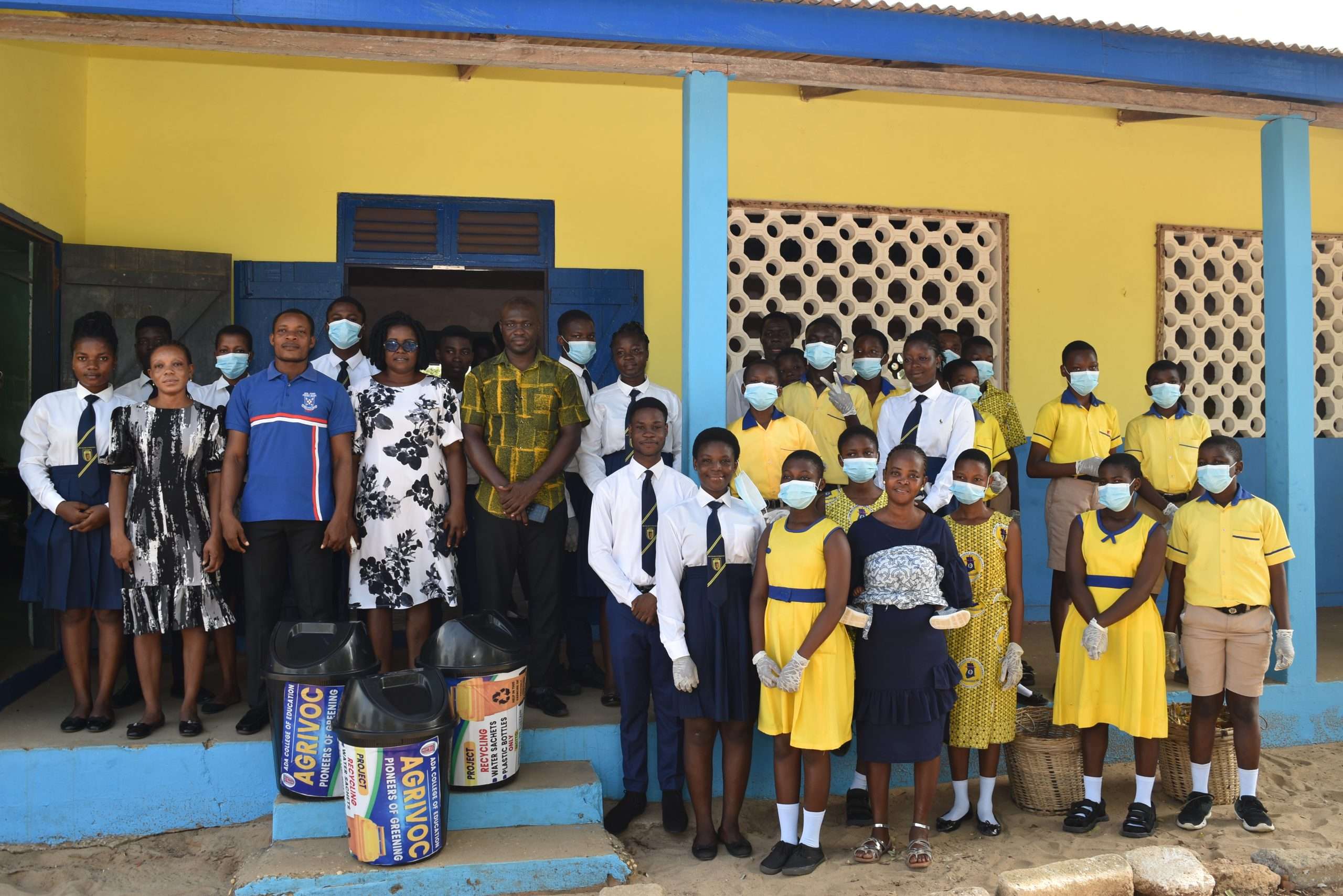Source: Ms. Pamela Nyadroh
Level 200 students (2024/2025) from the Agriculture and Home Economics Units of the Vocational/Technical Department of Ada College of Education organized a comprehensive community service initiative on April 7, 2025.
The programme was coordinated by Ms. Pamela Nyadroh and overseen by Mr. Alex Kojo Okyere, the course lecturer and Head of Department for Vocational and Technical Education (VOCTECH), respectively. This initiative formed part of the teacher trainees’ practical coursework and outreach responsibilities. It aimed to instill environmental discipline at the basic school level, foster hygiene consciousness, and encourage active participation in environmental stewardship among young learners.
It is in line with the College’s commitment to community engagement and sustainable education. The initiative focused on promoting environmental sustainability and hygiene in four selected basic schools within the Ada East District, namely; Presbyterian Basic School, Methodist Basic School, Totimekope Basic School, and Ada Foah Basic School.
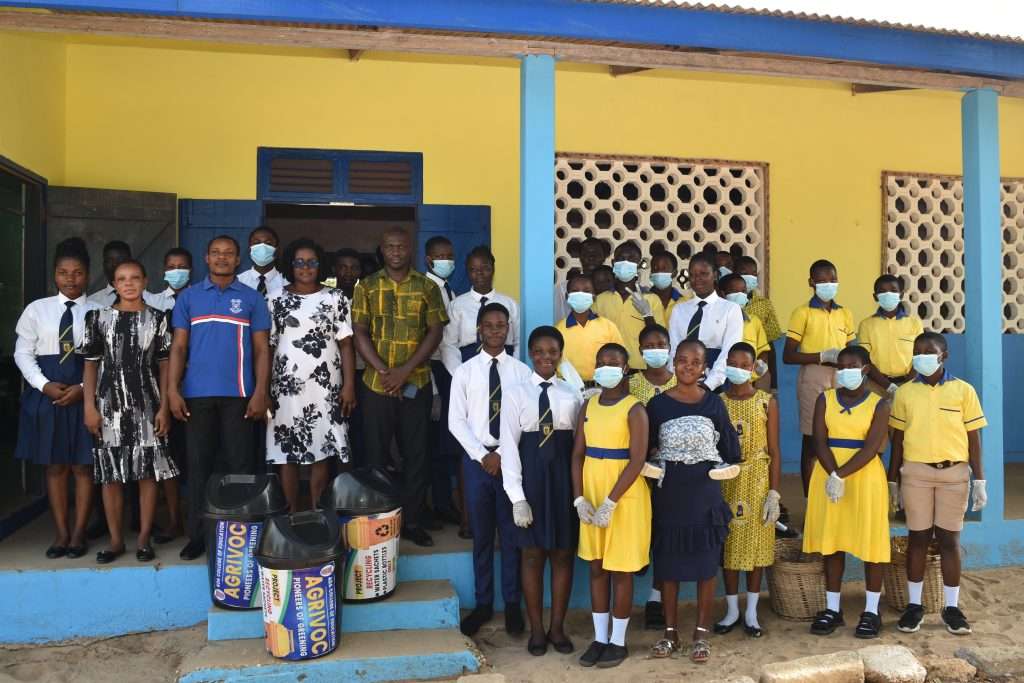
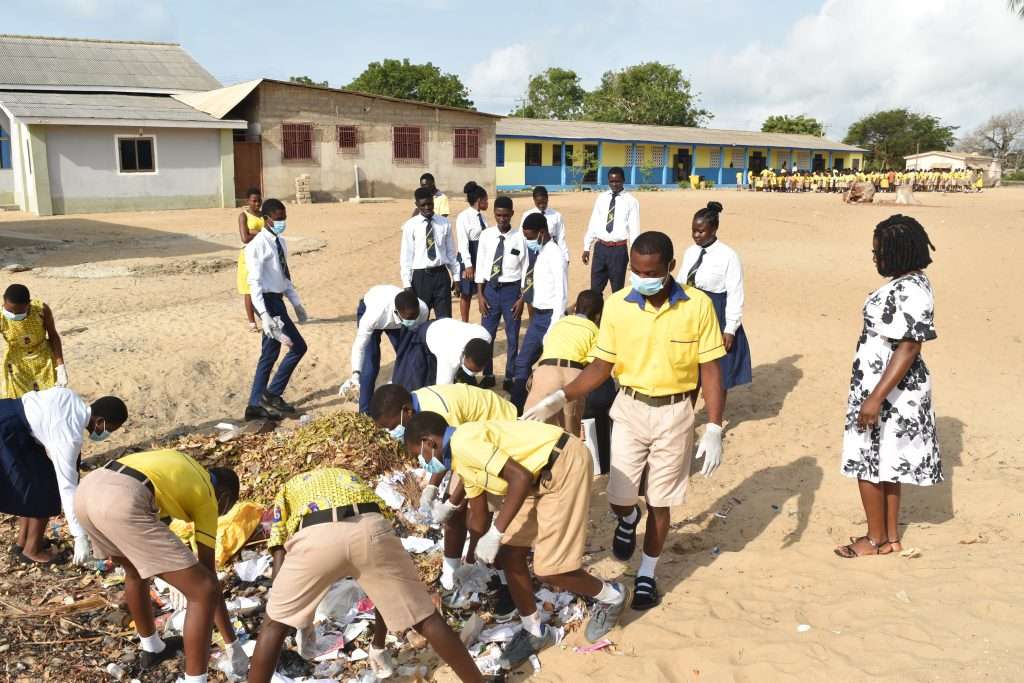
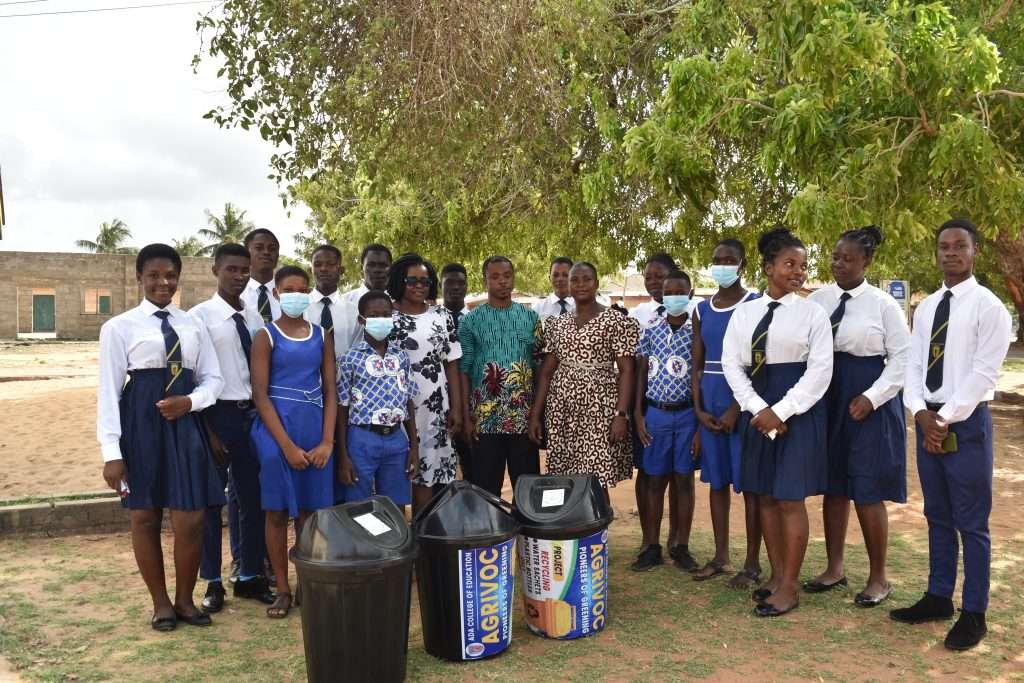
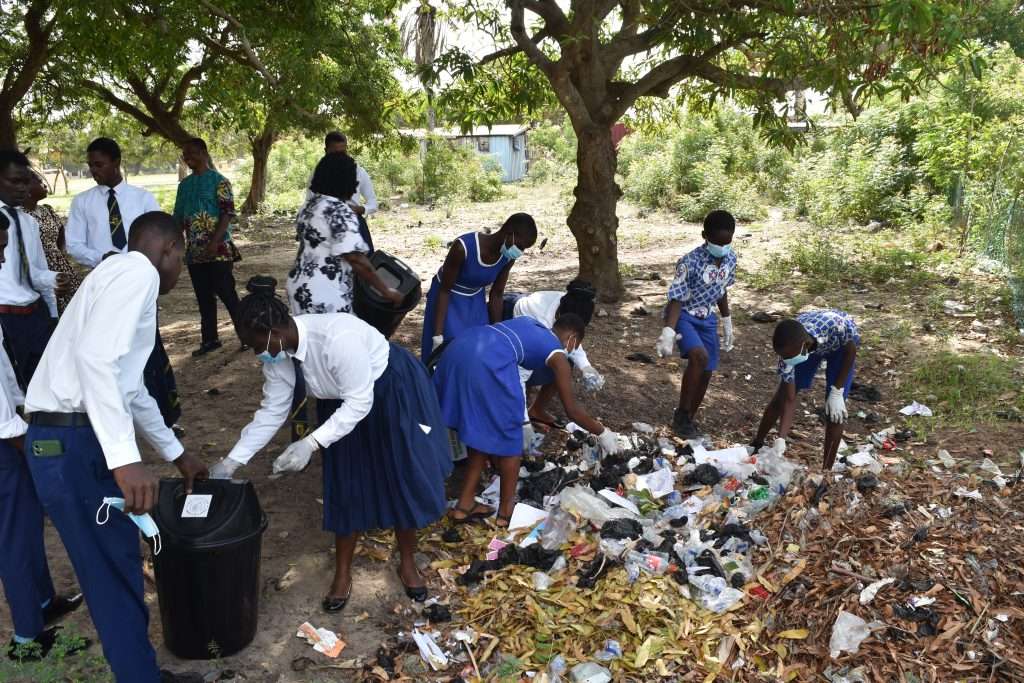
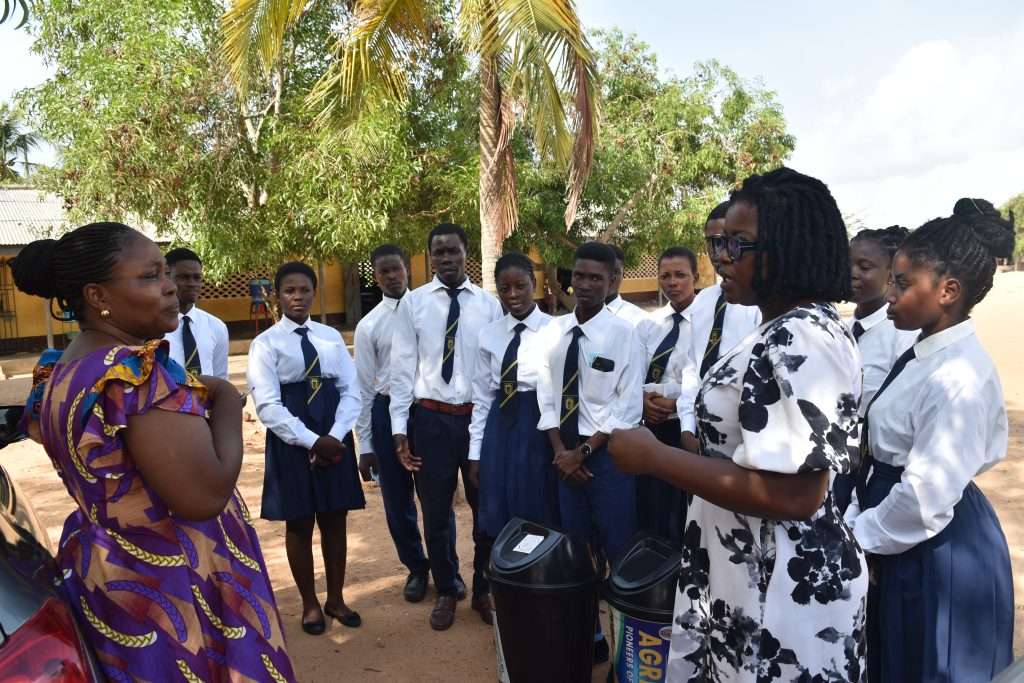
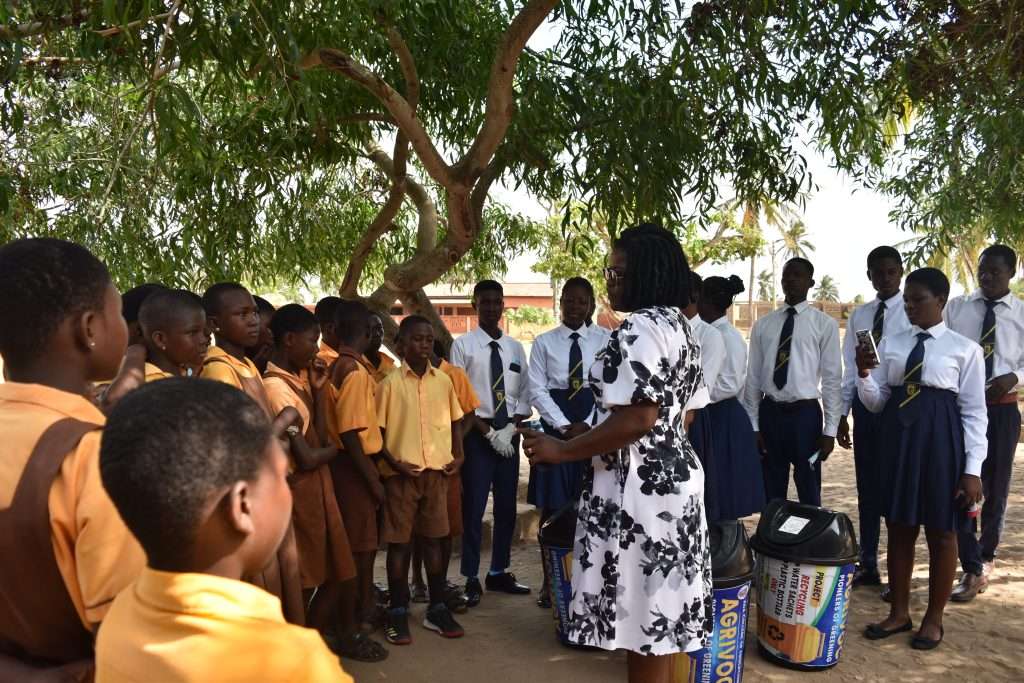
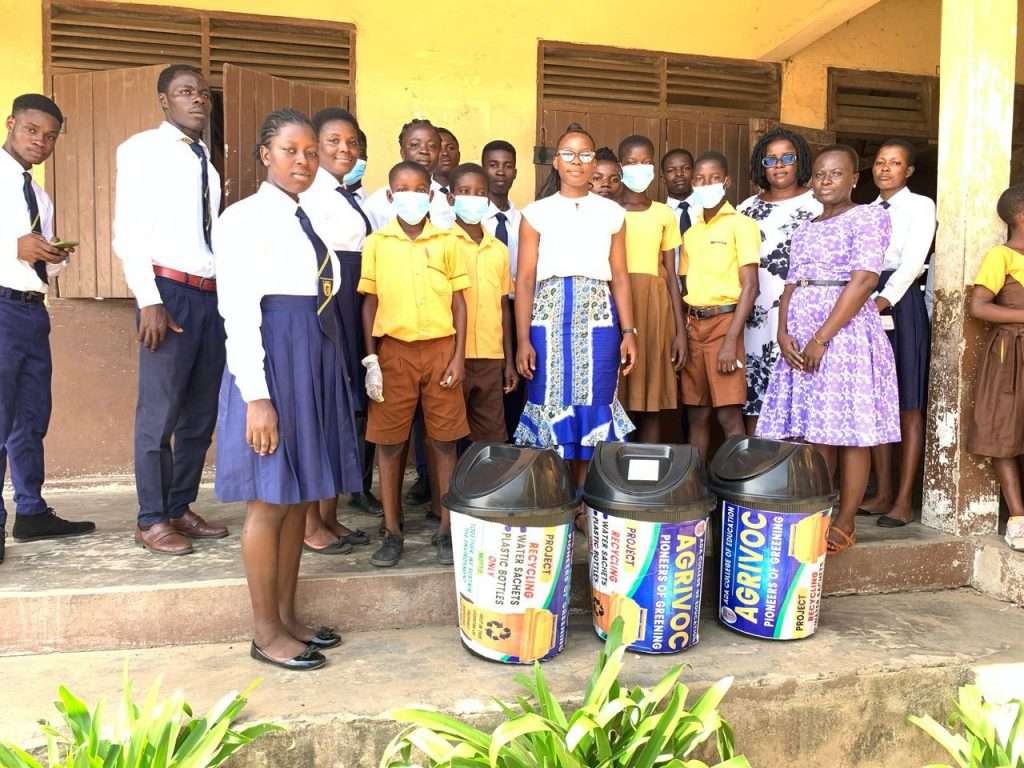
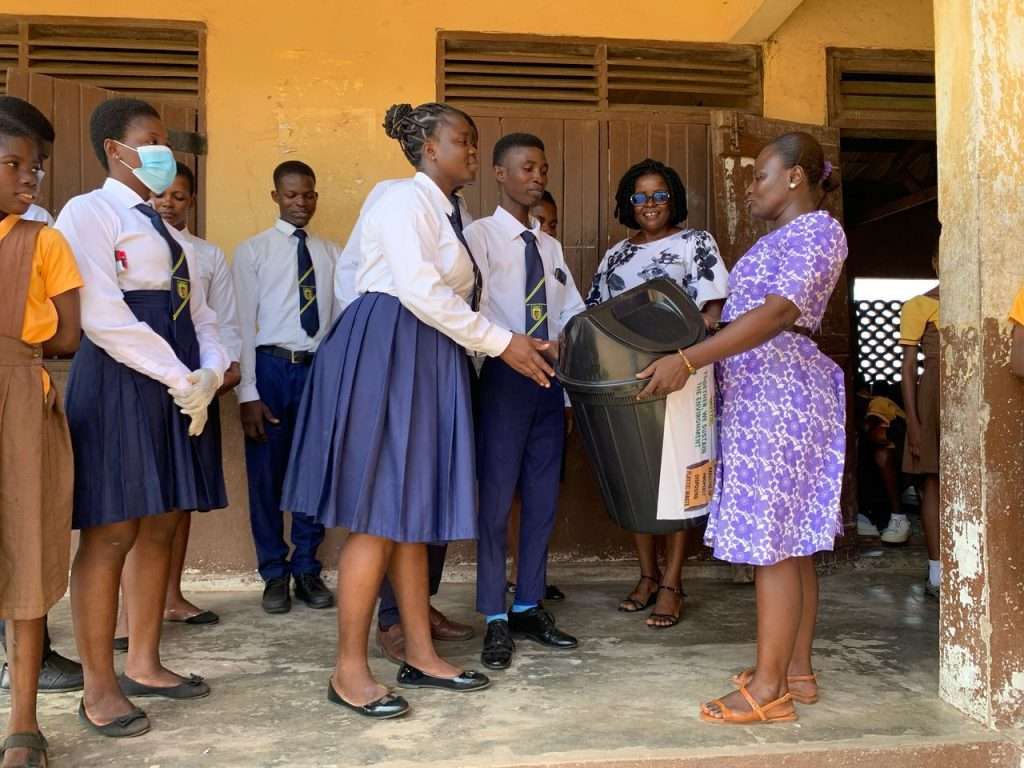
The schools benefited from the donation of dustbins and sensitization sessions on proper waste management practices. Learners received hands-on training in separating sachets and plastic bottles from other waste materials, using appropriate personal protective equipment (PPE) such as gloves and nose masks. These safety measures helped guard against contamination and modeled proper hygiene behaviour.
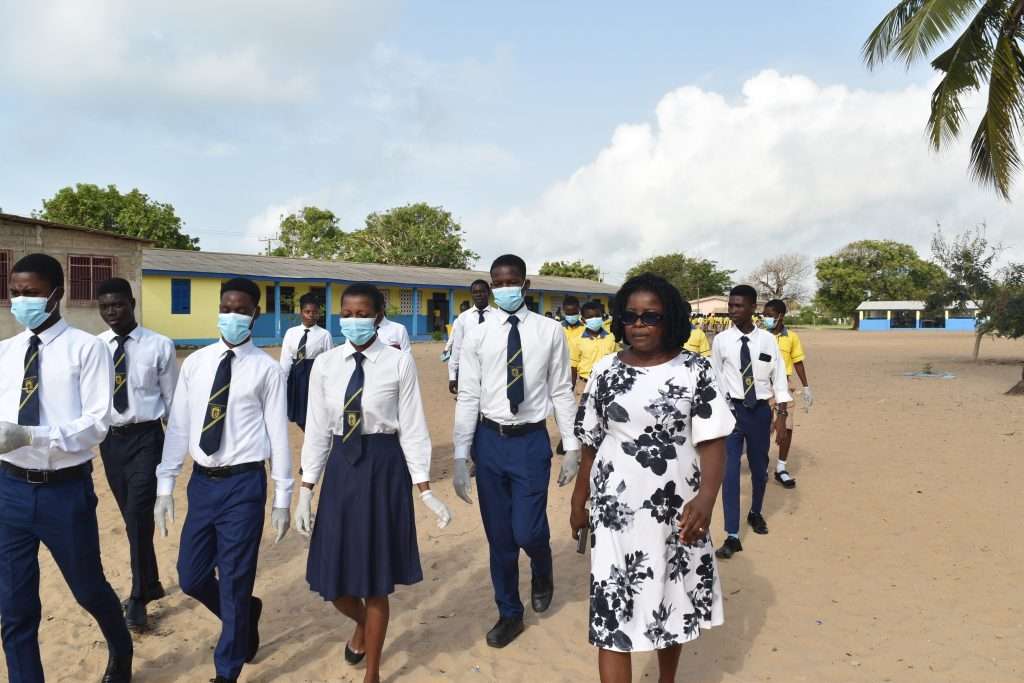
According to the student organizers, the programme was inspired by the belief that sustainable habits are best cultivated from a young age. “A clean environment is crucial for both good health and effective learning. We hope this initiative will empower learners to take responsibility for their surroundings and understand that everyone has a role in safeguarding the environment.” Ms. Nyadroh reiterated.
In furtherance of its objectives, the initiative supports the achievement of several Sustainable Development Goals (SDGs), notably Goals 3 (Good Health and Well-being), 4 (Quality Education), 11 (Sustainable Cities and Communities), 12 (Responsible Consumption and Production), 13 (Climate Action), and 17 (Partnerships for the Goals).
School authorities expressed their appreciation for the initiative, highlighting its alignment with the Ghana Education Service school sanitation and environmental cleanliness campaigns. Ghana’s National Environmental Sanitation Strategy and Action Plan (NESSAP) emphasizes the key role of school-based environmental education in achieving national sanitation goals. A recent study also affirms that engaging students in practical environmental activities significantly improves their awareness and behaviour (UNESCO, 2022).
Beyond education, the project also supports economic sustainability. The separation and collection of recyclable plastics open avenues for income generation, as proceeds from the sale of plastics can be reinvested in school improvement projects.
This community service initiative reflects the broader mission of Ada College of Education by training competent, socially responsible educators who contribute meaningfully to national development. Again, by empowering young learners with practical knowledge and resources, the college is playing a crucial role in shaping a clean, healthy and more environmentally conscious future. As the institution continues to strengthen its integration of environmental sustainability into teacher training, it sets a strong example for other colleges of education across Ghana and beyond.

